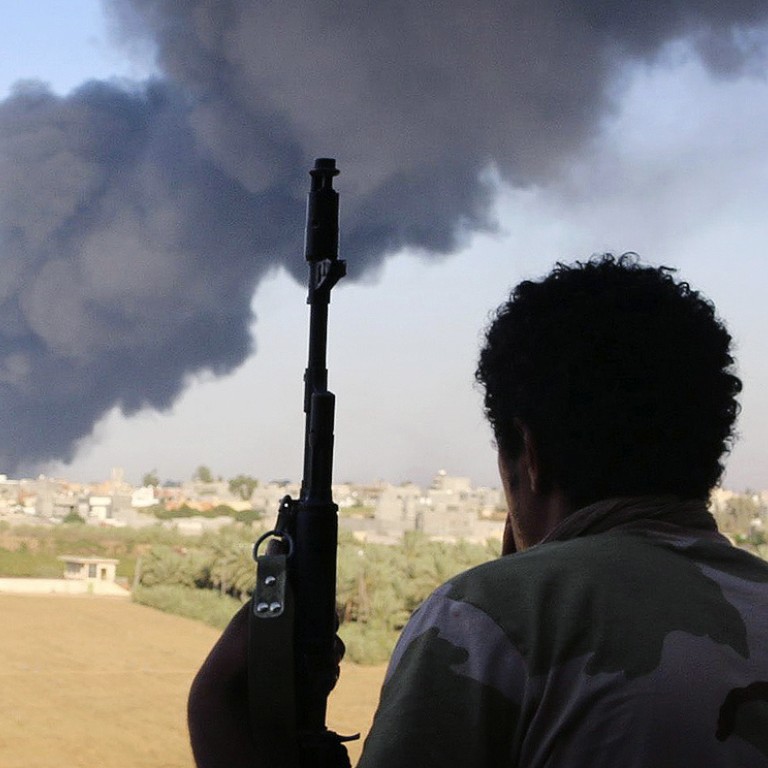
Libya a case study of the consequences of regime change
Few Libyans shed a tear when dictator Muammar Gaddafi was overthrown by Western-backed militias three years ago. The United States and its European allies used UN-authorised Nato air strikes and weapon supplies to bring about regime change without the heavy costs of the invasion of Iraq in 2003.
Few Libyans shed a tear when dictator Muammar Gaddafi was overthrown by Western-backed militias three years ago. The United States and its European allies used UN-authorised Nato air strikes and weapon supplies to bring about regime change without the heavy costs of the invasion of Iraq in 2003. They disengaged quickly, leaving Libya's people to fulfil their vision of a country with democratic freedoms. But political infighting and tribal, ethnic and religious complexities have created not peace, but chaos and regional instability, raising doubts that foreign intervention is ever a solution.
Gaddafi's strong-arm leadership kept Libya together, just as Saddam Hussein did in Iraq. Their oppressive rule cannot be condoned, but the turmoil that followed their removal reveals why they were so despotic. Libya is now on the verge of civil war, hundreds of people having been killed in fighting for control of major cities and oilfields. The chaos is spreading, with smuggled weapons fuelling conflicts in 14 countries, among them Syria, Nigeria, Somalia and the Central African Republic. Neighbouring Egypt and Tunisia have put troops on alert and thousands of foreign workers have fled to safety.
Libyans hope that the 200-member parliament's convening last Monday and its electing soon of a president will ease tensions. The biggest challenge will be controlling the militias that filled the power vacuum when Gaddafi was removed. With the government weak and institutions like the military, police and judiciary formative, the groups have brazenly ignored authority and rights. Islamic extremists have flourished through being better organised than rivals, just as in Iraq and Syria.
The UN's mandate for the air strikes was to protect civilians, but participating nations had agendas of their own. Despite the protests of fellow UN Security Council member Russia, they pushed for regime change. With Gaddafi's removal, the mission was hailed as a shining example of foreign intervention. By contrast, they have been silent about the subsequent chaos.
Governments have to respect the sovereignty of other nations. A case can be made for intervention when genocide and gross human rights violations take place, as in Rwanda in 1994. But such a path can only be sanctioned through the UN Security Council based on unequivocal proof and ensuring that internationally accepted principles are applied. Even then, the only cause is humanitarian goals; imposition of a particular belief system or self-interest are never justifiable reasons.

